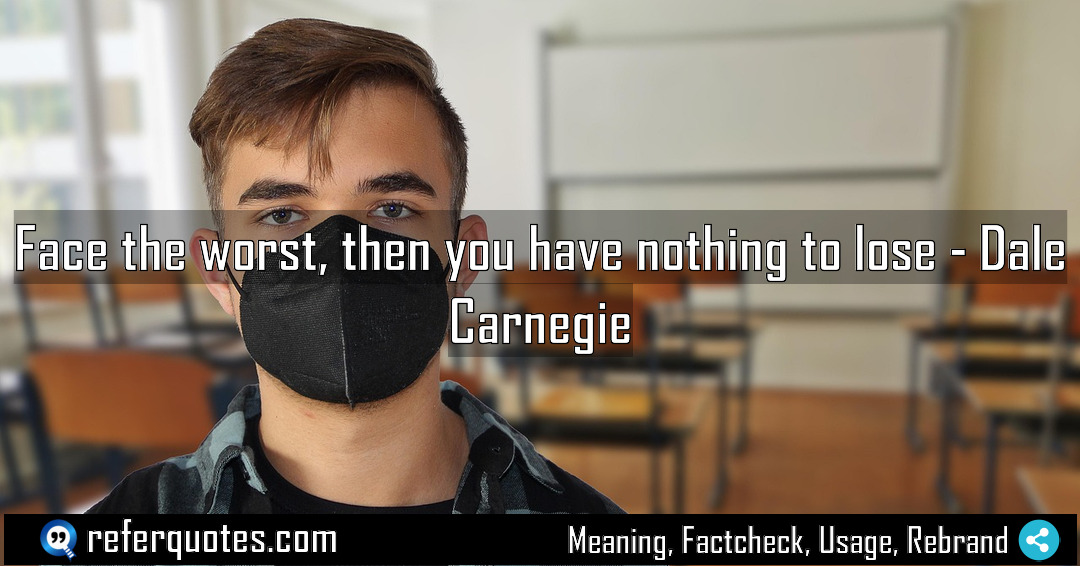“Face the worst, then you have nothing to lose.” This isn’t just positive thinking; it’s a strategic mental shift that disarms anxiety and unlocks decisive action.
Share Image Quote:Table of Contents
Meaning
The core message is about preemptively accepting the worst-case scenario to eliminate the fear of it, thereby freeing yourself to focus on improvement.
Explanation
Look, I’ve used this for years, and here’s the real magic of it. Our brains are wired for threat detection, right? So when we’re worrying, we’re essentially running on a hamster wheel of “what ifs.” Carnegie’s method forces you to get off that wheel. You consciously decide, “Okay, if the absolute worst thing I can imagine happens, what then? Can I live with it? Can I rebuild?” 99% of the time, the answer is yes. And once you’ve truly accepted that basement-level outcome, something incredible happens. The anxiety loses its power over you. You’re no longer paralyzed by the *potential* for loss. You’ve already faced it. Now, your mental energy is freed up to actually work on preventing that worst-case, or at least building a plan B. It’s not about being pessimistic; it’s about being a pragmatic realist. It’s a psychological judo move.
Quote Summary
| Context | Attributes |
|---|---|
| Original Language | English (3669) |
| Category | Success (341) |
| Topics | acceptance (73), courage (145) |
| Literary Style | succinct (151) |
| Emotion / Mood | comforting (13) |
| Overall Quote Score | 63 (28) |
Origin & Factcheck
This quote comes directly from Dale Carnegie’s 1948 classic, How to Stop Worrying and Start Living. It’s a cornerstone of his “Fundamental Principles for Overcoming Worry.” You’ll sometimes see it misattributed to Stoic philosophers like Seneca, and while the sentiment is very Stoic in nature, the specific phrasing is Carnegie’s from his work in mid-20th century America.
Attribution Summary
| Context | Attributes |
|---|---|
| Author | Dale Carnegie (408) |
| Source Type | Book (4032) |
| Source/Book Name | How to Stop Worrying and Start Living (31) |
| Origin Timeperiod | Modern (528) |
| Original Language | English (3669) |
| Authenticity | Verified (4032) |
Author Bio
Dale Carnegie(1888), an American writer received worldwide recognition for his influential books on relationship, leadership, and public speaking. His books and courses focus on human relations, and self confidence as the foundation for success. Among his timeless classics, the Dale Carnegie book list includes How to Win Friends and Influence People is the most influential which inspires millions even today for professional growth.
Official Website |Facebook | X | Instagram | YouTube |
Where is this quotation located?
| Quotation | Face the worst, then you have nothing to lose |
| Book Details | Publication Year/Date: 1948 (first edition) ISBN/Unique Identifier: 9780671035976 (widely available reprint) Last edition. Number of pages: Common Pocket/Simon & Schuster reprints ~352–464 pages (varies by printing) |
| Where is it? | The Willis H Carrier Formula chapter, Unverified – Edition 1948, page range ~104–112 |
